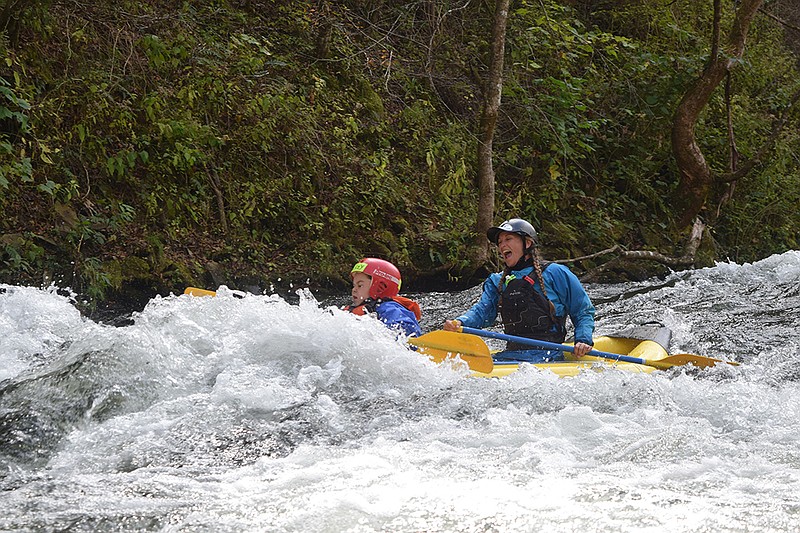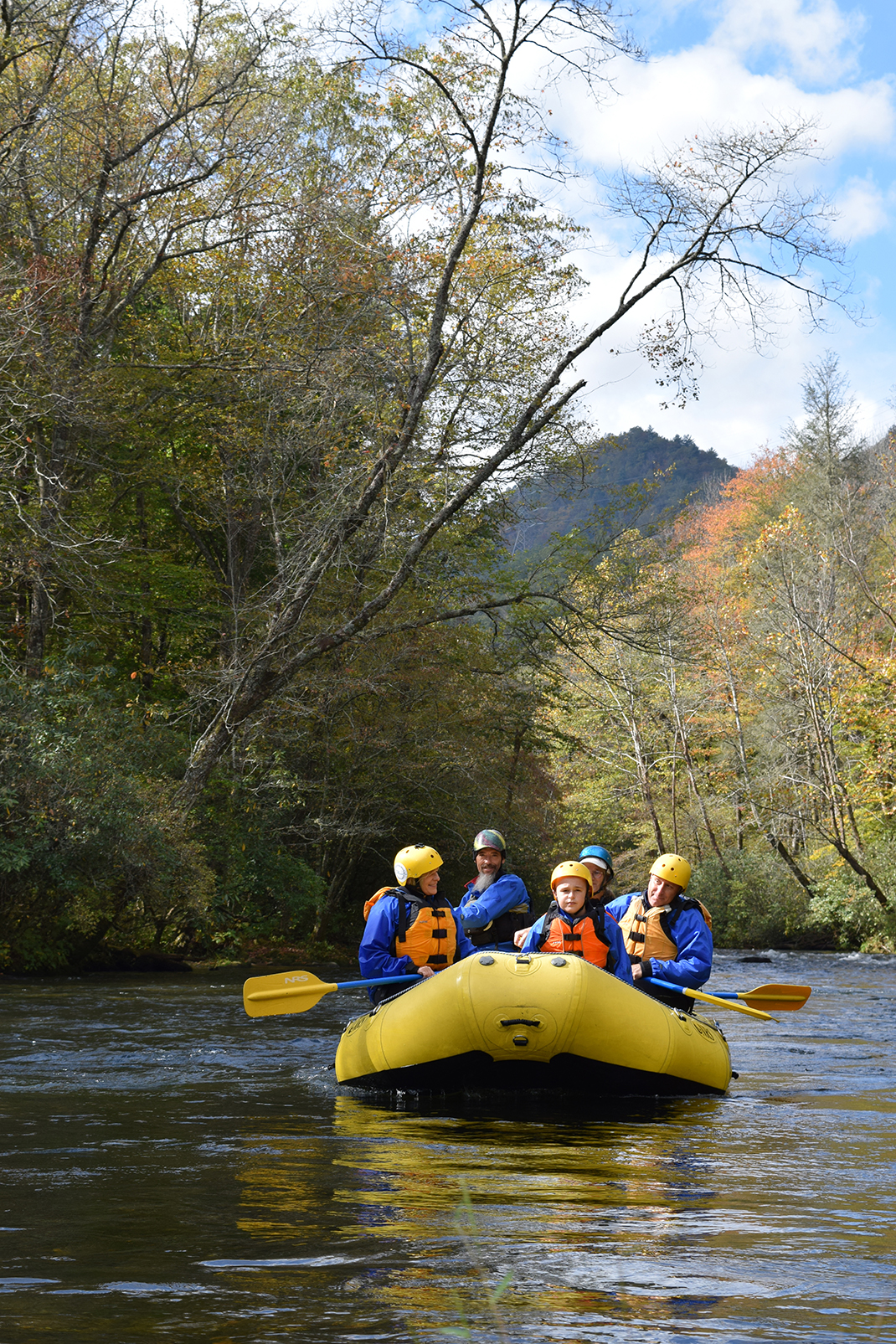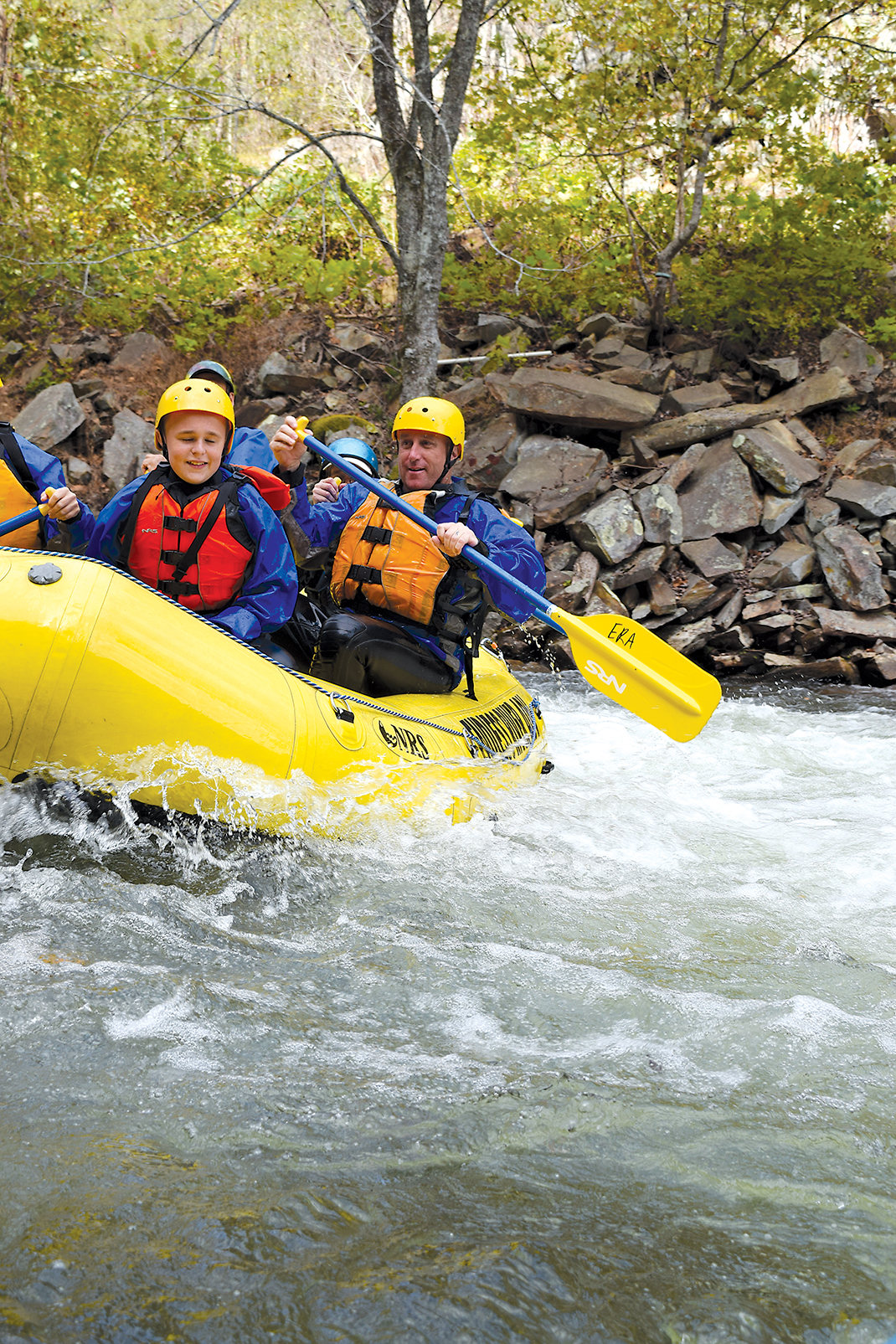Twelve-year-old Will Brittain may not have the words to describe the thrill of rafting Nantahala Falls, but that makes his experience no less powerful.
"There is excitement; there is trepidation - everyone is a little out of their element," says Jim Coffey, owner of Canada's Esprit Rafting Adventures and founder of Whitewater Healing, an international project that organizes whitewater river trips for children with autism spectrum disorder and their families. "Water is a great equalizer," he says.
Every October since 2015, Whitewater Healing has hosted one such trip along the notoriously frigid Nantahala River in western North Carolina. This year, the morning of the event was as cool as the water; around 45 degrees Fahrenheit. Coffey's volunteer crew of local raft guides and professional paddlers, many of whom had volunteered previous years, arrived at daybreak with whitewater canoes strapped to their vans.
"Feels like the tropics," joked Coffey, a Canadian native, as the group huddled outside Endless River Adventures outfitting company, their breaths matching the white mountain mist. While they waited for the three participating families to arrive, the paddlers traded tips on navigating well-known rapids and memories from past Whitewater Healing events.
Will, who is nonverbal, pointed to it. He wanted to run the falls again, but in the canoe.
"He knew what he wanted to do and who he wanted to do it with. Turns out he is not challenged with communication; he is challenged with verbal communication," Coffey says. "It was a very special moment in all of our lives. Part of this is for the kids and part is for the families, but the [volunteers] get an awakening, too."
Throughout the year, Coffey teaches whitewater rescue courses around the world, from Costa Rica to Canada. He coordinates his schedule so he can host Whitewater Healing trips during his travels. The project is not funded and is entirely volunteer-based. Local expert paddlers donate their time; outfitters like Endless River Adventures donate their rafts, paddles and life vests.
To reach families, Coffey relies on the close-knit network within the autism community. Much like whitewater paddlers, who make fast friends after overcoming a river's challenges together, parents of children with autism find ways to connect, often online, and become invaluable resources for one another.
The Brittains learned about Whitewater Healing through a Facebook post made by Surfers Healing, a California-based nonprofit that teaches children with autism to surf. One year earlier, Coffey and his wife Barbara had themselves discovered the surfing nonprofit. After watching the organization's promotional video, Coffey says, "It was the first time that we as parents actually thought maybe our son is on the spectrum."
Coffey's son Taïgan, now 6 years old, was diagnosed with autism spectrum disorder at age 3. The Centers for Disease Control estimate 1 in 68 children has autism in the United States, with a much higher prevalence in boys than girls.
"At first it was like getting kicked in the stomach. We had some time of denial, then we started going through the process," Coffey says. "Eventually we began to think, what can our contribution be? I'm so entrenched in the paddling community, but so new to the autism community."
Bridging the two made sense, says Coffey.
According to the National Autism Association, accidental drowning is a leading cause of death among children with autism.
"[Whitewater Healing's] first mission is to get kids on the spectrum used to wearing life jackets," Coffey says.
The second goal, he says, is to give families with autism an opportunity to get out and be active. For many of these families, a trip to a park, a restaurant or even the grocery store can be overwhelming, for both the child and the parents.
"Whenever we go anywhere or participate in anything, I am always so worried about how people are going to react to Will or how they are going to perceive him," says Kim Brittain, Will's mother. Her first trip to the Nantahala was no different. Malone had been their raft guide that year, too. Kim Brittain remembers at the start of the trip, she kept nervously instructing her son to sit still or not shout.
Finally, Malone said to her, "Hey, it's OK to let Will be himself.""Honestly some of the best and most important words in regards to Will that anyone has ever spoken to me," Kim Brittain says. "I remind myself of those words whenever I am worried about how the world is going to perceive Will."
But the Nantahala River is not a place where her family has to worry about acceptance. Instead, her family can focus on more immediate matters: the churning current, the cold spray, that roaring rapid up ahead.
On a chilly afternoon this October, as Malone bounced his raft over Nantahala Falls, Will was at the bow, whipping his head side to side.
"Wooo!" he cheered - the sound of primal joy, echoed by every other person on the water.



